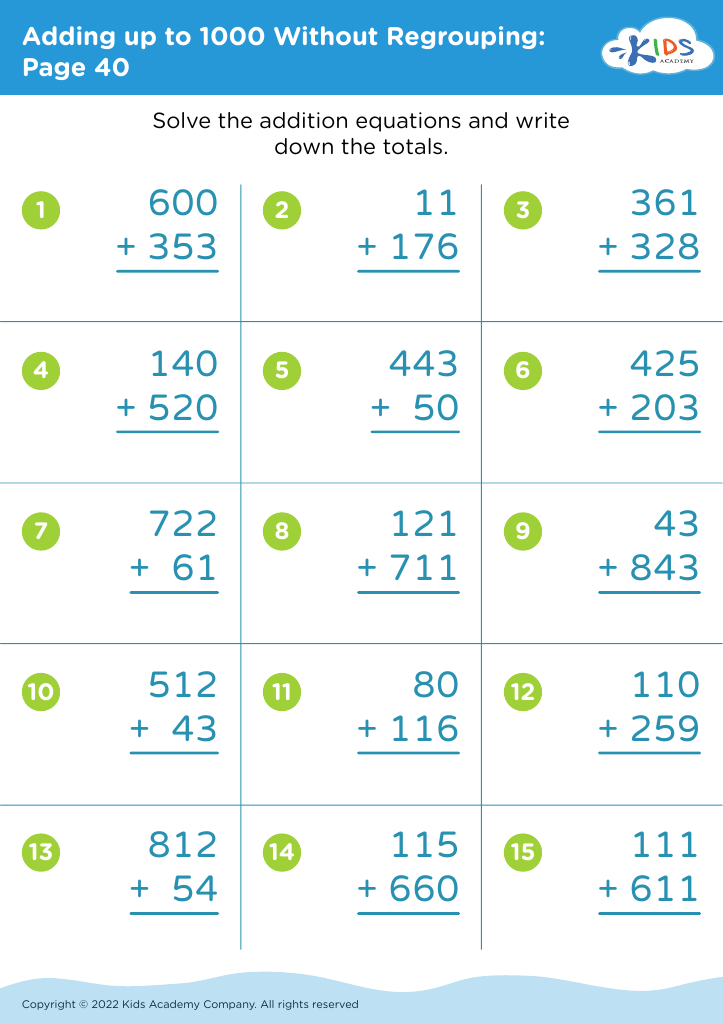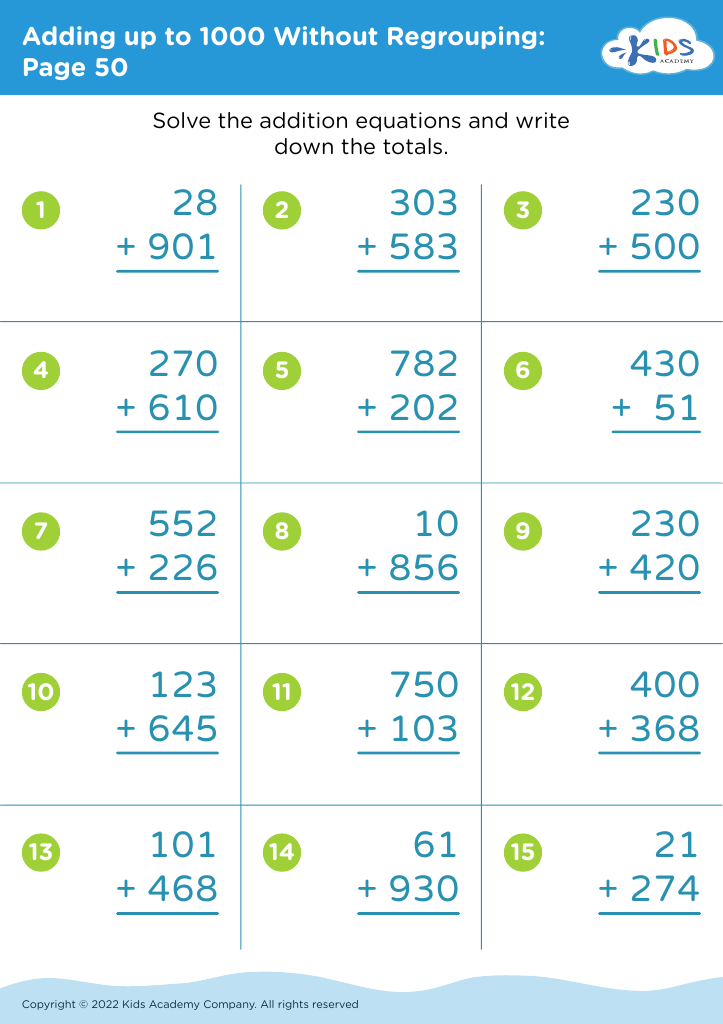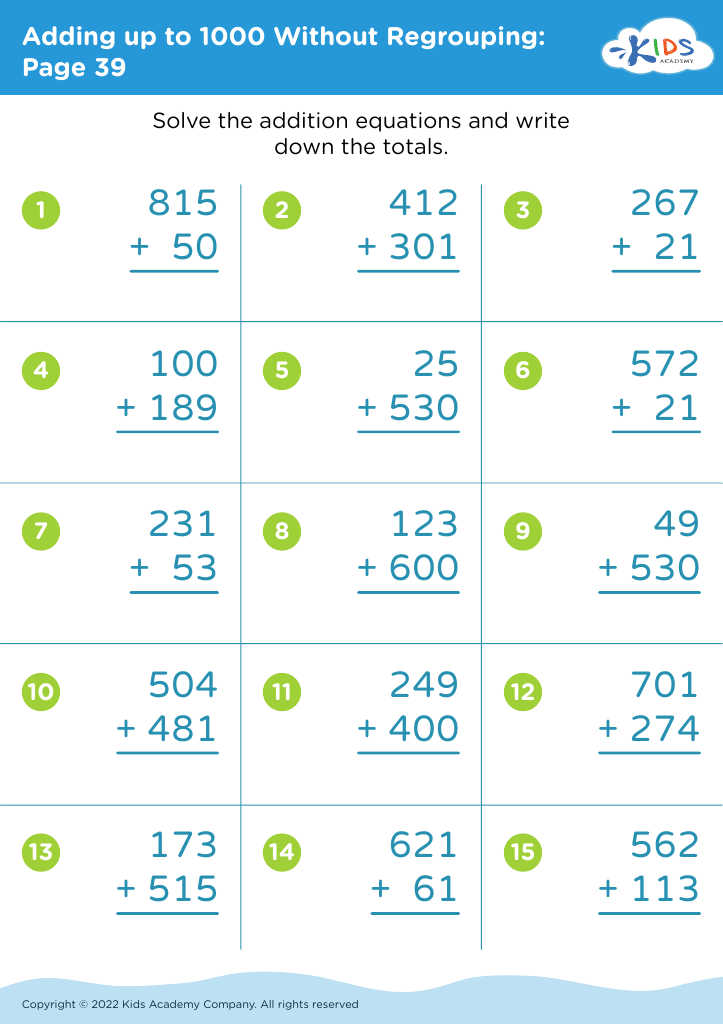Alphabet Recognition Adding up to 1000 Without Regrouping Worksheets for 7-Year-Olds
3 filtered results
-
From - To
Discover our engaging "Alphabet Recognition Adding up to 1000 Without Regrouping Worksheets" designed for 7-year-olds! These interactive worksheets combine crucial math skills with alphabet recognition, making learning both fun and effective. Your child will practice addition with numbers up to 1000 while reinforcing their understanding of the alphabet and letter sounds. Perfect for enhancing cognitive development, these worksheets help children develop confidence in their math abilities and literacy skills simultaneously. Ideal for home or classroom use, these resources foster excitement about learning and promote problem-solving skills. Get started today and watch your young learners excel in both math and letters!
Alphabet recognition and the ability to add numbers up to 1000 without regrouping are fundamental skills that nurture a child's cognitive development. For parents and teachers, fostering these skills is crucial for several reasons.
First, alphabet recognition is vital for literacy development. A strong foundation in recognizing letters enables children to read and write effectively, impacting their overall academic performance. As language is the foundation of communication, early proficiency helps children express themselves clearly and understand others, which is essential in their social interactions.
Similarly, mastering addition without regrouping helps to strengthen a child's numeracy skills. At the age of 7, children begin to tackle more complex mathematical concepts, making it imperative that they have a solid grasp of basic addition. Being able to add numbers accurately builds confidence and prepares them for future mathematical challenges. It also promotes critical thinking and problem-solving skills, essential for success in all academic areas.
In summary, focusing on alphabet recognition and addition skills empowers children with the confidence and foundation necessary for lifelong learning, enhancing their educational experience and setting them up for future successes in literacy and numeracy.












